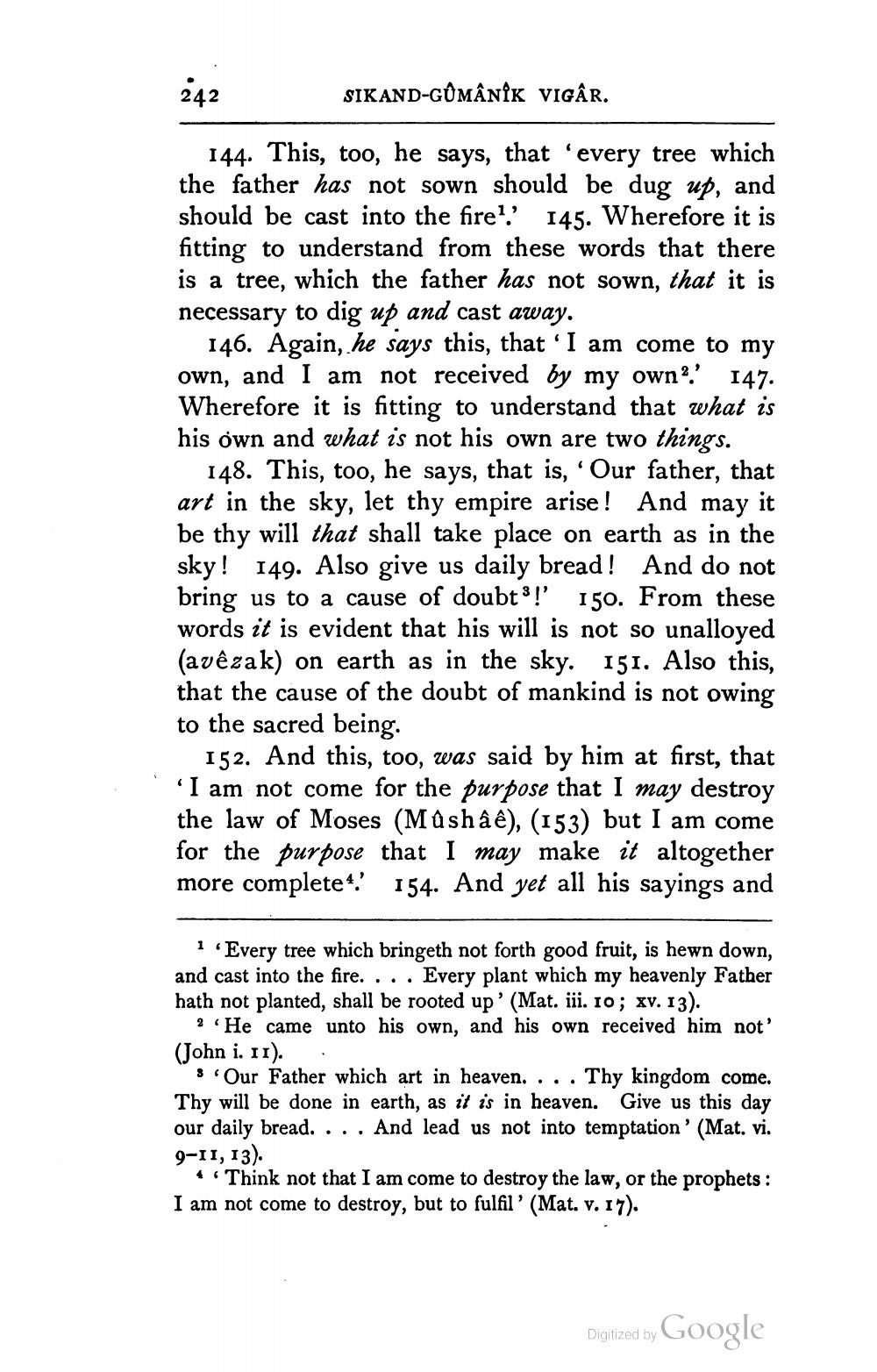________________
242
SIKAND-GÛMÂNÎK VIGÂR.
144. This, too, he says, that 'every tree which the father has not sown should be dug up, and should be cast into the fire?' 145. Wherefore it is fitting to understand from these words that there is a tree, which the father has not sown, that it is necessary to dig up and cast away.
146. Again, he says this, that I am come to my own, and I am not received by my own?' 147. Wherefore it is fitting to understand that what is his own and what is not his own are two things.
148. This, too, he says, that is, 'Our father, that art in the sky, let thy empire arise! And may it be thy will that shall take place on earth as in the sky! 149. Also give us daily bread! And do not bring us to a cause of doubts!' 150. From these words it is evident that his will is not so unalloyed (avêzak) on earth as in the sky. 151. Also this, that the cause of the doubt of mankind is not owing to the sacred being.
152. And this, too, was said by him at first, that 'I am not come for the purpose that I may destroy the law of Moses (Mash â ê), (153) but I am come for the purpose that I may make it altogether more completet.' 154. And yet all his sayings and
1 Every tree which bringeth not forth good fruit, is hewn down, and cast into the fire. . . . Every plant which my heavenly Father hath not planted, shall be rooted up' (Mat. iii. 10; xv. 13).
? 'He came unto his own, and his own received him not' (John i. 11). .
3 Our Father which art in heaven. ... Thy kingdom come. Thy will be done in earth, as it is in heaven. Give us this day our daily bread. . . . And lead us not into temptation' (Mat. vi. 9-11, 13).
4. Think not that I am come to destroy the law, or the prophets : I am not come to destroy, but to fulfil' (Mat. v. 17).
Digitized by Google




